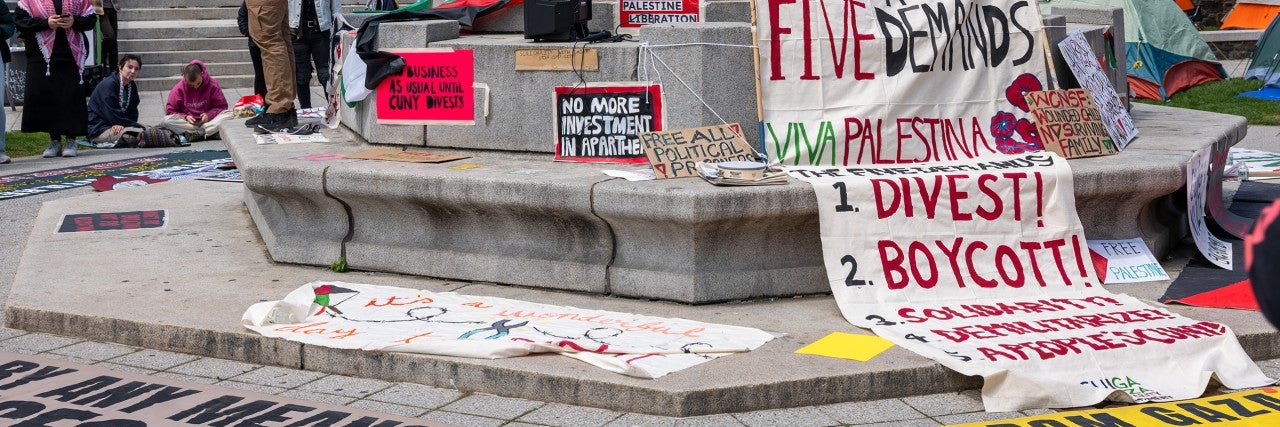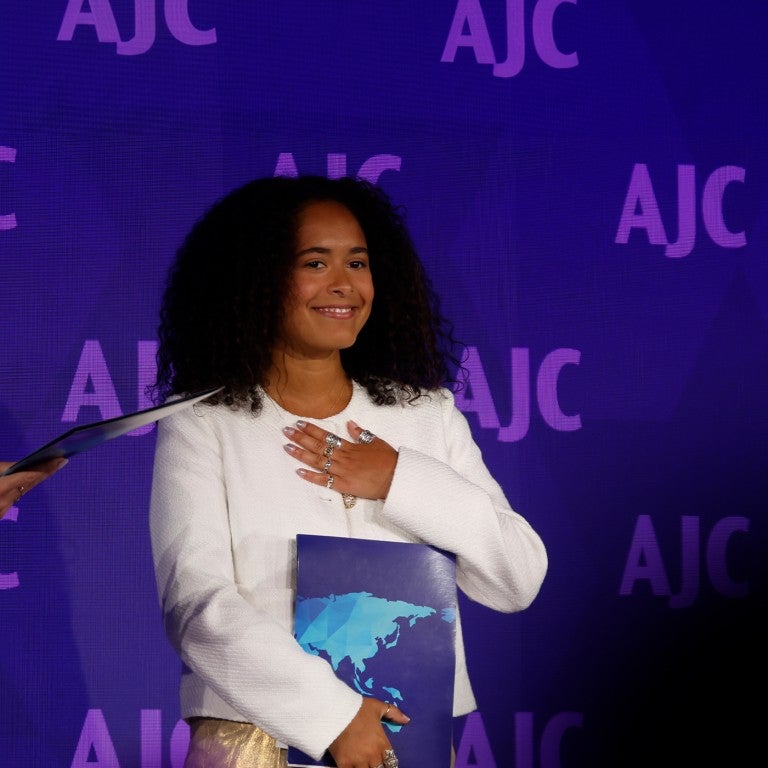Campus Boycott, Divestment, and Sanction (BDS)
What is BDS?
- The Boycott, Divestment, and Sanctions (BDS) movement is focused on encouraging governments, companies, universities, and individuals to dissociate from Israel and Israeli institutions (corporations, universities, etc.). The BDS movement advocates for the cessation of foreign and military aid, the dissolution of free trade agreements, the suspension of Israel’s membership in international fora, and the boycotts of Israeli academics and Israeli institutions of higher education.
- The BDS movement also rejects efforts for Israelis and Palestinians to build bridges and reduce tensions through people-to-people interactions and joint economic development, claiming that such actions would “normalize” Israel. BDS is counterproductive for those who want peace and the creation of a Palestinian state living side by side with Israel.
- Student governments at numerous universities across the country and around the world have launched BDS initiatives to pressure universities to divest from companies that do business with Israel and/or to cancel academic programs and travel opportunities connected to Israel.
Messaging about BDS
- University leadership should issue strong and unequivocal statements against BDS to set an example on their college campus. They should emphasize that academic boycotts are at odds with the principles of academic freedom and the free exchange of ideas and that ending all academic exchange programs and other initiatives with Israel is contrary to a university’s core mission to teach students how to build bridges between people of different backgrounds. University leaders must make clear that universities will not divest from Israel or cut ties with academic programs in Israel.
- While no university has divested from Israel or enacted a boycott based on a student government resolution, BDS has a corrosive impact on college campuses.
- BDS campaigns often spread misinformation about Israel, reduce a complicated conflict to a flattened binary, silence and marginalize Jewish students, and undermine campus values of academic freedom and diversity of ideas.
- BDS campaigns often incorporate anti-Zionist and antisemitic language, demonizing the vast majority of the Jewish community who support and have connections to Israel.
- BDS campaigns often target and isolate Jewish students on campus for their perceived or actual support or connection to Israel and make them feel unwelcome on campus. In some cases, pro-BDS organizations can also lead to exclusion of Jewish students from progressive student groups because they are Zionists.
- The targeting of individual faculty members or speakers because of their Israeli heritage or support for Israel is particularly dangerous because it furthers the antisemitic trope of dual loyalty and demonizes all Jews and Israelis for the actions of the Israeli government. It also inhibits the academic freedom of targeted faculty members.
- While BDS proponents often speak of their support for “academic freedom,” acts limiting students or faculty’s ability to study what and where they choose is a violation of the principle of academic freedom and is antithetical to academic values.
- BDS campaigns are antisemitic as they demonize the world’s only Jewish state and hold Israel to a double standard by singling it out for censure while holding no other nation to the same standard.
- While criticism of Israel is certainly acceptable, as it would be for any other country, discussions should operate on the premise that Israel’s right to exist is not up for debate. When a movement seeks to delegitimize Israel’s right to exist, singles Israel out for censure while holding no other nation to the same standard, or demonizes the world’s only Jewish state, criticism of Israel ceases to be legitimate.
Background on BDS
- Boycotts of Israel are not a new phenomenon. The Arab League imposed a boycott of Jews in Mandatory Palestine, beginning in 1945, three years before the establishment of the State of Israel.1
- The modern BDS movement was founded in 2001 during the United Nations’ World Conference Against Racism in Durban, South Africa, which was overtaken by anti-Israel organizations who equated Zionism with racism and initiated the strategy to boycott Israel. By 2005, a coalition of 171 Palestinian organizations had taken on the BDS agenda.2
- While BDS supporters suggest their movement is non-violent and focused on the rights of the Palestinian people, their true intention is the elimination of Israel as the only Jewish state.
- Omar Barghouti, the founder of the BDS movement, made that perspective clear: “Good riddance! The two-state solution for the Palestinian-Israeli conflict is finally dead. But someone has to issue an official death certificate before the rotting corpse is given a proper burial and we can all move on and explore the more just, moral and therefore enduring alternative for peaceful coexistence between Jews and Arabs in Mandate Palestine: the one-state solution.”3
- Barghouti also opposed a bi-national Arab and Jewish state:
“I am completely and categorically against binationalism … because it assumes that there are two nations with equal moral claims to the land and, therefore, we have to accommodate both national rights. I am completely opposed to that.”4
- There are four main categories of BDS activities:
- Academic Boycott - the refusal to work with Israeli universities and professors
- Cultural Boycott - cancellation of shows featuring Israeli artists or those who support Israel or perform in Israel
- Economic Boycott and Divestment - Refusing and encouraging others not to buy Israeli products, products produced in Israeli settlements on the West Bank, or divesting from companies that do business with or in Israel.
- Christian Boycott - Church groups who have endorsed BDS policies and refuse to engage with Jewish organizations and communities that support Israel.
More information about BDS
- AJC’s BDS homepage
- Behind the Boycott: The History of the Hateful Campaign Against Israel
- Tough Questions on the Anti-Israel BDS Movement Answered
- BDS on Campus: What Should Jewish Students Expect?
- Governors United Against BDS
- AJC Project Interchange
1 https://ajc.org/behindtheboycott
2 https://www.israelactionnetwork.org/bds-101
3 Omar Barghouti, "Relative Humanity: The Essential Obstacle to a One-State Solution" in The Plight of the Palestinians, ed. William A. Cook, 2010: 233-254.
4 Ibid.





